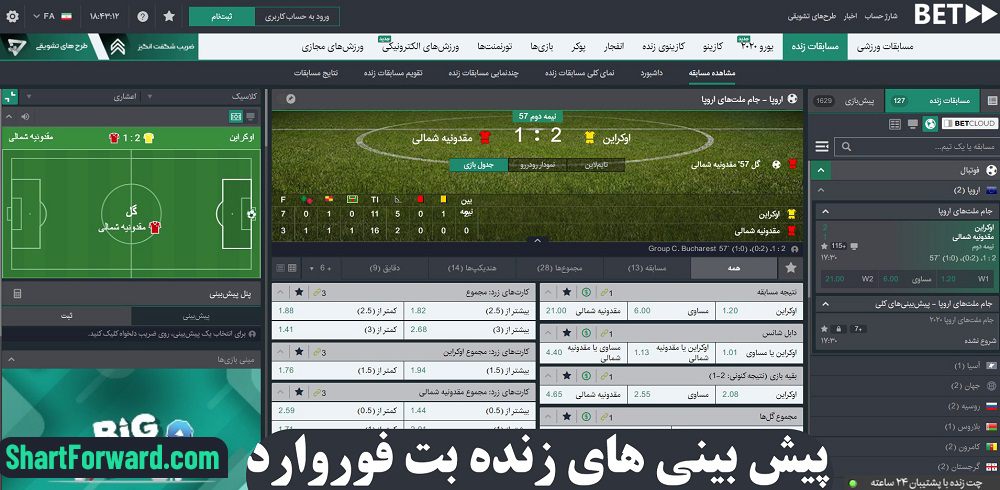
No matter what hobby, job, or task you pursue, everyone has one common goal: to get better. Sport betting is no different. You might have started to betforward.com on sports for fun, or just to make a little more money. But, just like anything else, there will come a time when you want to step up to the next level with sports betting. In this article, we are going to take a look at what that next level looks like, what it means, and what sort of things to do when you get there.
In our article for beginner sports bettors, we talked a lot about the money line and the point spread. These are the two most common types of bets that people place in sports betting; if you don’t know what we are talking about go back to the beginner section and wait at least a year before attempting the next step in your sports betting career! At the intermediate level, you need to be aware of more than just the definitions of the point spread and the money line; you need to understand what each means in terms of the money you stand to win or to lose.
Remember that both the point spread and the money line are reflections of betting action, not necessarily the skill of a team. This means that the more people who bet on one team, the more the bookmakers will shift the lines to favor the underdogs. Let’s take a regular season baseball game between the Atlanta Braves and the Florida Marlins as an example. Two days before the game, the books are putting out a line something like this:
Over the course of the next two days, people find out that the Braves have changed their starting pitcher. Instead of the second best pitcher, the best guy is now on the mound. Moreover, the Marlins’ top batter is out of the lineup with an injured thumb that day. Now, the lines look like this:
The bookies have made a couple of changes. First of all, they are charging those who want to bet on the favorite Braves an extra $20 for every $100 they bet. They are also offering those betting on the underdog Marlins an extra $10 for every $100 THEY bet. It’s a difference of $30.
That difference is because the public are betting even more money on the Braves after the news about the starting pitcher and the injured batter. Bookmakers are trying to balance the action by decreasing the value of a bet placed on the Braves. They will apply a similar strategy with the point spread in this and other sports.
That value is very important for anyone who wants to take the next step in sports betting. If you consider yourself to be at the next value, you will likely pass the re-worked lines up. Why? Because a fair value bet on the Braves, the original, has just been replaced with a poor value bet. The Braves might still win, but you can’t be sure enough to risk an extra $20 for every $100 you hope to win. It’s a bad return. Nor do you want to take the Marlins, who in all likelihood will still lose the game.
In addition to watching the lines and the spreads a bit more carefully, intermediate sports betting involves a new range of available bets. When you were just starting out, comprehending lines and spreads probably took up most of your time. Now that you are ready for a little bit more action, and have those two basic types down, it’s time to look at a few more sports betting options. Here are some of your choices:
o Parlays: With a parlay card, you bet on several teams to win. You can bet up to 12 games on a parlay card, but every team must win in order for you to get your money back plus the payout. You have to know your sport pretty well, and even then parlays are a big risk. But, they generally offer a higher payout for less money.
o Teasers: If you don’t like the points a book is offering on a spread, you can opt for a teaser. With a teaser, you bet on a couple of different teams, and you can take points from one and give them to another so that the spread is more favorable. Expect a lower payout, but some good manipulation will give you a higher chance at a win than if you took the original points offered by the book.
o Futures: If you REALLY know your game, you might consider making future bets. These are placed at the beginning of the season, or at the beginning of playoffs. You can bet on a team to place first in their division, conference, or even win the Big Prize at the end of the season. The more teams competing for placement (for example, less teams are trying to win the American League than are in the running for the World Series trophy) the higher the odds, and that means a better payout if you call it right.
With a higher level of understanding generally comes more money wagered. As always, remember to watch your bankroll. At the intermediate level you may wish to increase the amount of money you bet, but stay within a limit you set for yourself at the beginning of each betting season.